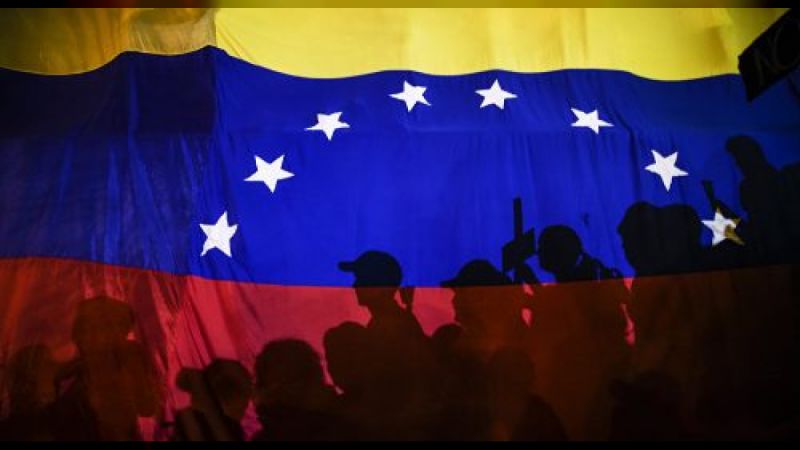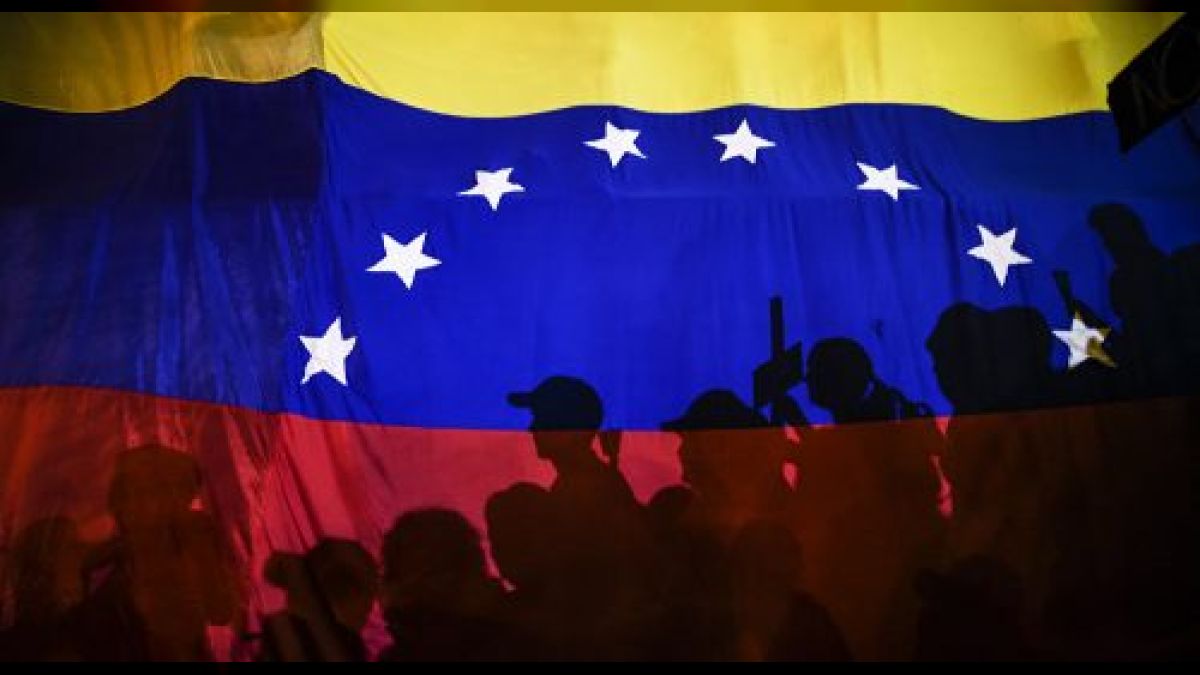NGOs and their use for interference and terrorism



Published at: 05/04/2024 06:10 PM
It seems that Non-Governmental
Organizations (NGOs) are not as worthy as they appear to be. In
a consultation, carried out through the Artificial Intelligence tool, ChatGPT, to learn about the
institutions that finance the Venezuelan opposition, in order to carry out
activities against the stability of the Venezuelan Government, the
following were found: Progresa Foundation, International Foundation for Democracy (
FID), Open Society Foundation , Konrad Adenauer Foundation, Foundation for the Development of Democracy (FUDEM), in addition to Oxfam, Doctors Without Borders, the United Nations
Refugee Agency (UNHCR) and Save the Children; these
organizations have a different function than what they present on their
websites, since there are complaints of their irregular actions in countries not allied
to the United States.
The
Colombian journalist and writer, Hernando Calvo Ospina, wrote an article
in July 2007 in which he explains that “in countries such as
Iran, Chile, Nicaragua... since the 1950s, the wars carried out
by the Central Intelligence Agency
(CIA) sparked a scandal in the United States when former President Ronald Reagan
,
by creating the National Foundation for
Democracy (NED), provided Washington
with a less visible and above all less controversial tool than the CIA,
but with the same objective: to destabilize by funding its opponents”.
There is a
well-structured network between NGOs and the North American
empire; this is shown by reviewing in detail the threads and
connections of these organizations and external governments, in addition to what is explained in
the Manual on Financing Political
Activity of the United States Agency for International Development
(USAID), in which we find that they operate from a place where they do
community aid and collaboration projects linked to right-wing political
parties, based on supposed solidarity and good will.
Declassified State
Department documents show
that Latin America is essential
for the United States to remain a
power, due to geopolitical issues of access to resources. They need, then, to be guarantors of security and their access to raw materials and
natural resources, by virtue of what they themselves call “the war against
communism”.
In this way, the
North American country found in these organizations a less
violent method of invasion than the Condor Plan. The State Department's
narrative is maintained as one of “defense,
development and diplomacy”, an armed strategy for operating with
soft power, so that it does not need to intervene militarily, but rather to make
countries become its allies.
He explains, in these
documents, that the idea is not to confront Latin America, but rather that the region sticks to the
American model, to the use of its resources and wealth for imperial development,
which also includes training its military and public order forces.
According to this, all
countries that hinder access to these resources would be attacked,
regardless of their ideology, because the priority of the United States is access to oil and
markets, driven, in part, by the penetration of transnationals in the region.
In addition, the Wikileaks organization
revealed documents that detail that USAID
provided at least 15 million dollars to 300
civil organizations in Venezuela between 2004 and 2006, within the framework of “human rights and
education”. This information was issued
by the political advisor of the American embassy in Caracas, Robert Downes, and
describes the strategic points delimited during that period against the government.
The strategic points referred to
by Downes were:
strengthening democratic institutions, penetrating the political base of
President Hugo Chávez, dividing
Chavism, protecting vital businesses for the United States and isolating the Venezuelan president internationally.
Using
NGO figures to finance
extremist groups that are responsible for carrying out activities to destabilize government
management falls within the definition of terrorist financing, and
clear examples of this type of activity are those carried out by USAID.
Also, telegrams
transmitted by the former US
ambassador to Venezuela, William Brownfield,
leaked by the Wikileaks portal in 2013, show the
support for opposition groups in the country and the funding received by the NGOs that live here on the part
of the American government. These telegrams also revealed that the Office of Transitional Initiatives (OTI)
of USAID promoted 34 new NGOs and created programs to generate
discontent with regard to government management, such as sabotage of
basic services, scarcity and hoarding of basic necessities, among others.
Among the actions of these NGOs is the use of young people to
try to weaken the mood of the security forces and achieve the submission of
nations to imperialism, support for political parties of the
Venezuelan opposition, such as First Justice, Democratic
Action, COPEI, Movement to Socialism, Project Venezuela and
Popular Will. The funding plan granted to these groups in 2002 exceeded
2 million dollars to expand and strengthen their programs and projects
in our country.
The Red
Cross
The business of war does not
only refer to the purchase and sale of weapons, it involves a
large number of NGOs that receive
millions of dollars for the care of the victims they generate, which
becomes an attractive strategy for intervening in countries. The Red Cross is one of them.
Those who finance
wars do the same with aid and in Latin American countries there is
a direct relationship between the activities carried out by the CIA, USAID and humanitarian operations led by the Red Cross. We have seen their presence in internal armed
conflicts in nations such as Guatemala,
Honduras, Mexico and El Salvador,
funded by USAID and, in turn,
served by the Red Cross.
This organization has been
very useful to USAID in its
interventionist activities in our country. In an annual report, called “Regional Crisis Due to the Situation of
Venezuela, Complex Emergency” , the
Red Cross reported that in 2020 there were 7.5 million people in
need in Latin America and of that number, 5.6 million were
Venezuelan refugees, who in addition, to serve that population at risk, provided
762.5 million dollars and projected 1.4 billion for 2021. According to
its estimates, this agency requested $795 million for 2022 and
projected $1.7 billion for 2023.
It also works together
with actors interested in overthrowing the Government of President Nicolás Maduro, and uses as
platforms the headquarters of the Red Cross
of the countries of the region to intervene and promote destabilization in Venezuela.
In 2019, during the Battle of the Bridges on the border
between Colombia and Venezuela, the Red Cross used its regional
headquarters to support the entry of military material, disguised as
humanitarian aid, led by the self-proclaimed deputy Juan Guaidó. The German portal DW detailed to date, in its
news, that supposedly “the Government of Maduro is keeping the bridge through which the aid
would enter blocked, the Chilean Red Cross launched this Thursday, February 07, a
campaign to collect medicines for the Venezuelan population and urged the constitutional
president to allow the arrival of humanitarian aid.”
Later, on
October 28, 2019, the Dialogo Americas portal published that Mark Green, administrator of USAID, announced that on September 24,
together with Venezuelan legislators, human rights activists and Carlos Vecchio, representative of Juan Guaidó in the The United States would make a “donation of 52 million dollars to help the interim
president, his Government and the Venezuelan people to re-establish democratic
governance that provides answers to the country's inhabitants”.
He added that “this money will go to programs that support the National Assembly of
Venezuela in 2015, independent media,
civil society and the restoration of the health sector through the Red Cross and other
NGOs.”
Green also
stated on that occasion that “these new funds earmarked for
programs within Venezuela are
in addition to the 376 million dollars in humanitarian assistance already provided by the US
government, in response to the Venezuelan regional
crisis, which includes essential support managed by the Red Cross International for Venezuelans in situations of vulnerability and
for the communities that host them in Brazil,
Colombia, Ecuador , Peru and other
places in the region”.
It is thanks to these actions that the need to approve and apply laws that regulate the actions of
NGOs in Venezuela becomes
relevant, in order to follow up on these organizations
that receive illegal foreign funding and are used to
destabilize the country.
AMELYREN BASABE/Mazo News Team